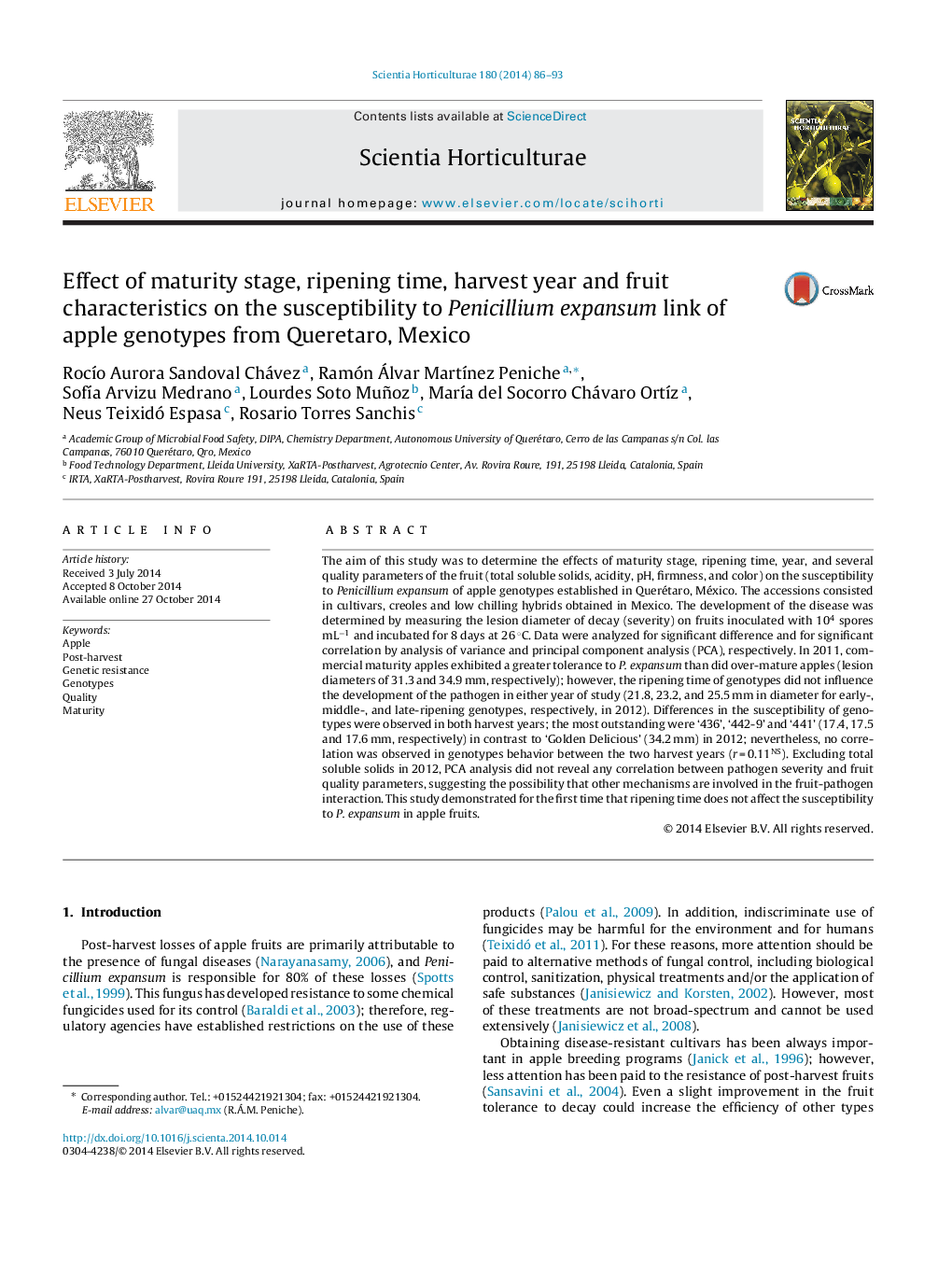| Article ID | Journal | Published Year | Pages | File Type |
|---|---|---|---|---|
| 4566531 | Scientia Horticulturae | 2014 | 8 Pages |
•Susceptibility to P. expansum was evaluated in apple genotypes during two years.•No correlation in genotypes’ susceptibility was observed between both harvest years.•Commercial maturity apples were more tolerant to P. expansum than overmature apples.•The ripening time of genotypes did not influence the development of the pathogen.•No correlations between the susceptibility and fruit quality parameters were found.
The aim of this study was to determine the effects of maturity stage, ripening time, year, and several quality parameters of the fruit (total soluble solids, acidity, pH, firmness, and color) on the susceptibility to Penicillium expansum of apple genotypes established in Querétaro, México. The accessions consisted in cultivars, creoles and low chilling hybrids obtained in Mexico. The development of the disease was determined by measuring the lesion diameter of decay (severity) on fruits inoculated with 104 spores mL−1 and incubated for 8 days at 26 °C. Data were analyzed for significant difference and for significant correlation by analysis of variance and principal component analysis (PCA), respectively. In 2011, commercial maturity apples exhibited a greater tolerance to P. expansum than did over-mature apples (lesion diameters of 31.3 and 34.9 mm, respectively); however, the ripening time of genotypes did not influence the development of the pathogen in either year of study (21.8, 23.2, and 25.5 mm in diameter for early-, middle-, and late-ripening genotypes, respectively, in 2012). Differences in the susceptibility of genotypes were observed in both harvest years; the most outstanding were ‘436’, ‘442-9’ and ‘441’ (17.4, 17.5 and 17.6 mm, respectively) in contrast to ‘Golden Delicious’ (34.2 mm) in 2012; nevertheless, no correlation was observed in genotypes behavior between the two harvest years (r = 0.11NS). Excluding total soluble solids in 2012, PCA analysis did not reveal any correlation between pathogen severity and fruit quality parameters, suggesting the possibility that other mechanisms are involved in the fruit-pathogen interaction. This study demonstrated for the first time that ripening time does not affect the susceptibility to P. expansum in apple fruits.
